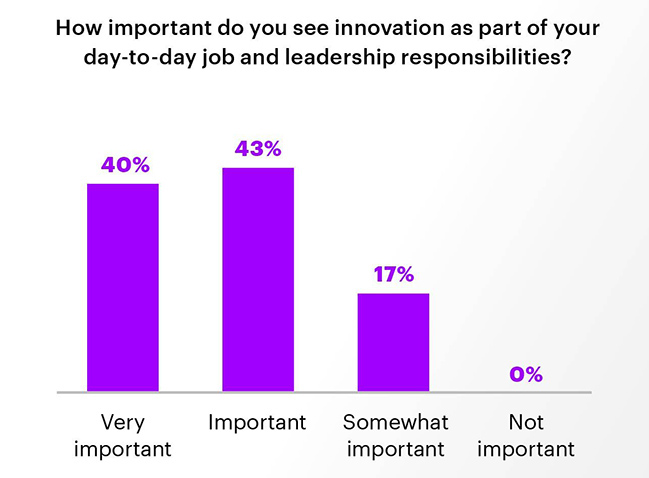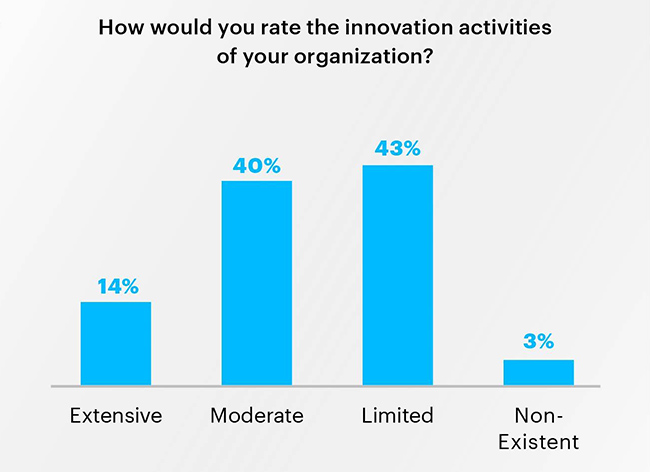State CIOs see innovation as critical priority, only 14% report extensive innovation
Most state CIOs see innovation as a major part of their job – 83% said innovation is an important or very important part of their day-to-day leadership responsibilities – while only 14% reported extensive innovation initiatives within their organizations, Accenture and the National Association of State Chief Information Officers (NASCIO) reveal.

Previously, NASCIO had highlighted innovation as a top ten current issue facing state CIOs.
“The pace of technological change keeps accelerating, bringing new challenges and opening opportunities, and state CIOs have an important, central role to play in fostering innovation to help government deliver better services and value to citizens,” said Doug Robinson, NASCIO’s executive director.
“State government operating models should evolve to better enable, emphasize and capture the benefits of innovation, and this research points the way forward.”
State CIOs: Obstacles to innovation
The survey focused on identifying current practices and their views regarding obstacles to innovation. Most notably:
- Lack of funding is seen as the top barrier: 63% cited as top barrier, followed by workforce skills
- Executive support for innovation is perceived as low: 26% said their state administrative leadership has made innovation a stated priority, and 6% said their state legislature has done so
- Governance structures to oversee innovation are becoming more common: 49% have one and 31% are developing one
- Collaboration in innovation ecosystems is mainly internally focused: Input from employees is the top source of innovative ideas, cited by 63%, while less than half point to external collaborations and only 14% point to input from citizens
- Workforce skills are a pervasive challenge: 85% cited struggles finding the right skills for innovation, and 46% identified lack of skills as the top barrier for innovation

“Effective innovation depends on consistent, strong leadership support, collaborative systems and a conducive organizational culture, and state CIOs are key across all these dimensions,” said Rick Webb, Accenture managing director.